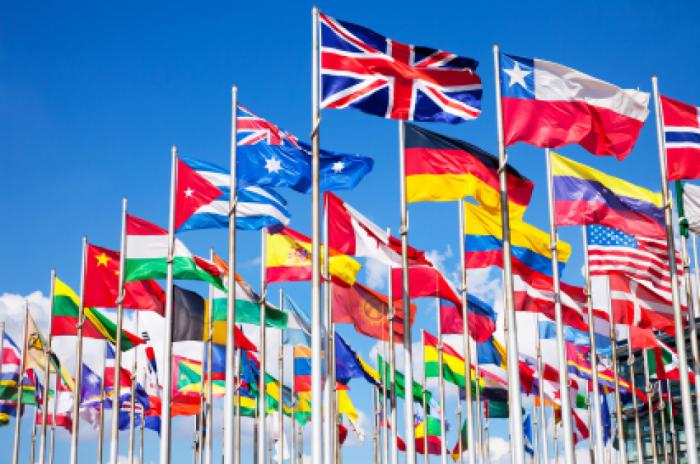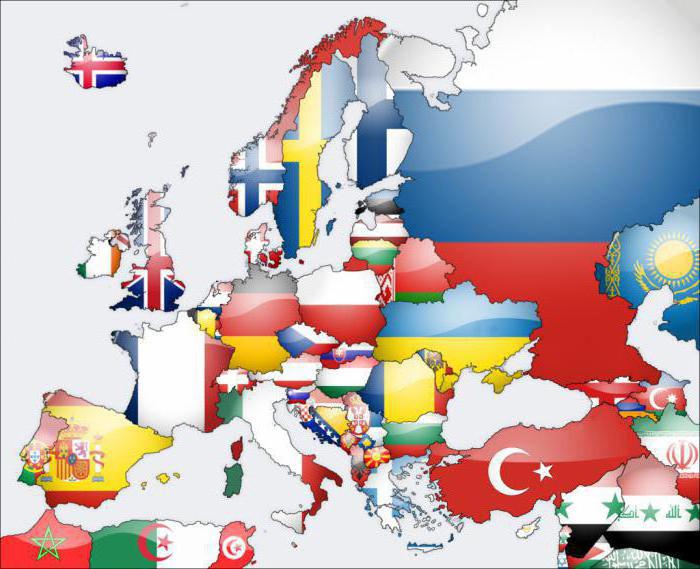Sovereignty implies ... The concept, types of sovereignty. National sovereignty
Man at all times was a gregarious creature.- none of us can exist outside of society. Therefore, people have long created social formations. The first were communities based on the kinship of their members. Further development led to the emergence of tribes. But with the evolution of social relations, such formations have ceased to cope with the function of coordinating the activities of people, since society has constantly grown. Therefore, over time, tribal communities become states.
Such structures are characterized by the presence of power,centralized governing bodies, legal methods of influence on society, etc. The external characteristics of countries are of great importance. If tribal communities practically did not enter into external relations with other formations, in the modern world, states actively interact with each other. But for a country to be a subject of international relations and recognized by other similar formations, it must possess sovereignty.
This phenomenon has been actively investigated sincethe emergence and formation of democratic trends. This led to the fact that today sovereignty is a complex category, built on its own principles and having certain types.

The concept of sovereignty
As mentioned earlier, the state iscomplex social formation. Sovereignty, in turn, is the basis of its direct construction. It should be noted that this is primarily a legal concept. It, along with the territory, population and government, is a part of the legal regime of each state separately.
Sovereignty implies real independence.countries in both internal and external relations. It should be noted that there are several identical concepts that characterize the independence of narrower social groups than the state.
History of appearance
Principle of sovereignty or categorySovereignty appeared in legal science for a long time. The concept was first introduced by Jean Bodin, a politician who lived in the 16th century. Initially, the complete independence of the state was not supposed to be sovereignty. The category was characterized by the unlimited power of the suzerain, as opposed to his vassals.

That is, sovereignty is the supreme power.monarch This interpretation appeared because of the specifics of the regulation of interstate relations at that time. After all, almost all activities were coordinated by the norms of canon law, according to which, the supreme ruler recognized only the Pope of Rome.
The conclusion of the Westphalian world has shaken thisstatus. According to this agreement, states gained sovereignty at the level of internal affairs and in the sphere of trade relations. Of great importance was the territory of the state. It was she who became the main measure of the existence of the mentioned social category.
Signs of Sovereignty
Any legal phenomenon is characterized bycertain features. Thanks to them, it is possible to distinguish a specific category as an absolutely independent one. As mentioned earlier, sovereignty presupposes the existence of an external and internal independence. Based on this, a number of key features of two types can be identified:
- Internal signs of sovereignty are: supremacy of power and its independence. The first aspect testifies to the unconditional spread of power to absolutely all persons residing in the state. The rule in this case is ensured, firstly, by laws, and secondly, by the existence of a coercive mechanism. As for the independence of state power, this aspect is characterized by independence from the influence of other types of authorities.
- There are also external signs of sovereignty. The main is the independence of power from foreign influence. In other words, any state should not coordinate the activities of the country and dictate its own conditions. In addition to this, there is a sign of legislative monopoly. It implies the impossibility of issuing regulations in the territory of a particular country by the authorities of a foreign state.

Thus, sovereignty implies the complete freedom of the country from any kind of influence. Therefore, this category can be described as a complex legal phenomenon.
Sovereignty in international relations
Great value presented in the articlecategory plays in the process of interconnection between countries. It is one of the key principles of international law. It is enshrined in most modern acts, for example, in the UN Charter.
The essence of sovereignty is thatinternational relations can enter exclusively independent states. That is, integral, political and social "organisms" in which the rule of law, legitimacy and independence of power prevails. In other words, independent states are the key “players” of the international arena.

Types of sovereignty
Submitted legal phenomenon hasseveral species branches. As mentioned earlier, the classification is based on the size of a particular social formation, which is attributed to sovereignty. In line with this, there are three main types of independence that are distinguished in the constitutional law of many countries, including in the Russian Federation, for example:
- state sovereignty;
- folk;
- National.
The first type characterizes independent states, as already mentioned. In turn, the sovereignty of the people and nationality, or ethnic group, is characterized by some specific aspects.

Independence of the population
Popular sovereignty involves democracy. In this case, there is nothing to do with the independence of the state structure. Because popular sovereignty determines the freedom of society in the process of realization and creation of power. This category is characterized by two main features, namely:
- to the people belongs all power, without exception, in the state, which it realizes through representative bodies;
- people have the right to exercise power directly.
This category plays a significant role in the process.building state. Indeed, the sovereignty of the power of the people is the basis of democracy in its classical form. A similar state of affairs in which society is the main source of a country's activity today exists in most countries. For example, the sovereignty of the Russian Federation is built primarily on the supreme power of the people, which implements it through central bodies.
National independence
There is a kind of national sovereignty. In most cases, it is identified with the people, but these categories are completely opposite.
National sovereignty comes frominternational legal principle of self-determination of the nation. That is, any, without exception, ethnic group can determine its own form of government, the structure of society, the economic system, etc. This possibility is inherent in any nation.
The sovereignty of this type is due in greaterparts not right, but the historical development of mankind. That is, at some point, this or that nation realizes its vital interests and creates a qualified social and political structure. In the theory of constitutional law, it is believed that the sovereignty of nationality complements the state.
Sovereignty of Russia

The Russian Federation is todayindependent and democratic state. Its sovereignty is based on the supremacy of the people’s power and certain legal documents. In this case, it should be noted that in Russia there is one key document that regulates the political and legal foundations of the country, including sovereignty. The constitution is a similar legal act.
It contains provisions thatformalize the independence of the state in internal and external relations. Of great importance is also the declaration of sovereignty. This act at the time secured the withdrawal of the RSFSR from the Soviet Union and the creation of a new state - the Russian Federation.

Intervention opportunity
According to modern international legaltrends, sovereignty implies the obligation of the state to protect its population from any threats. If it is not possible to fulfill this obligation, it will be assigned to the international community. That is, in this case there is a direct possibility of external interference, violation of the sovereignty of the state.
Thus, the existence of any statedue to its freedom in external and internal relations. This is possible only if there is sovereignty - a complex right phenomenon, the study of which does not stop to this day.







